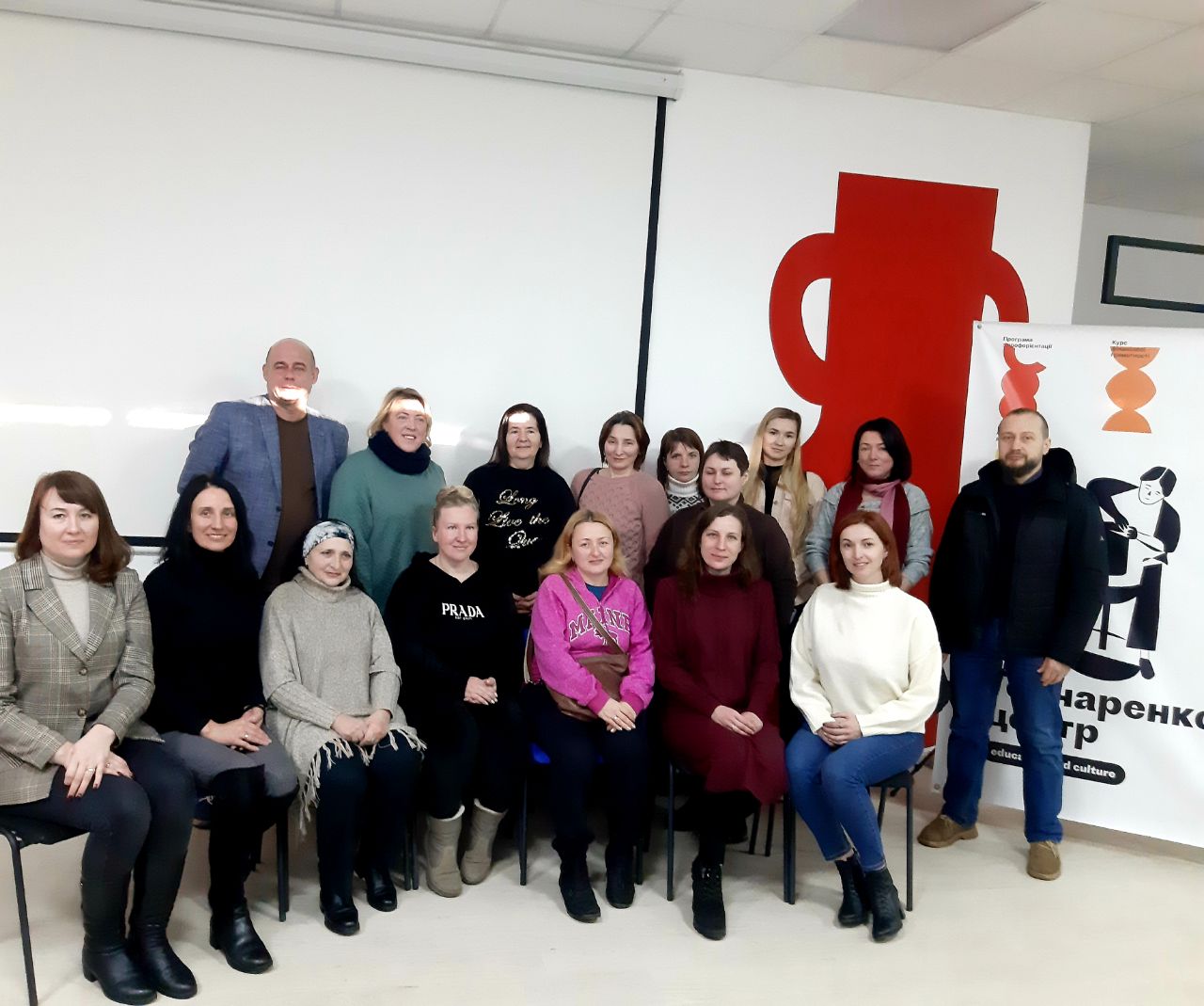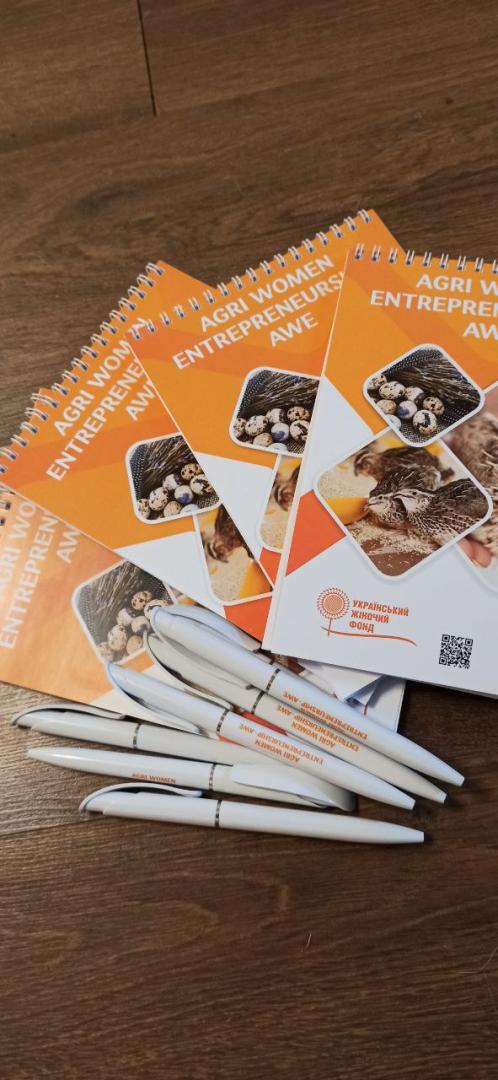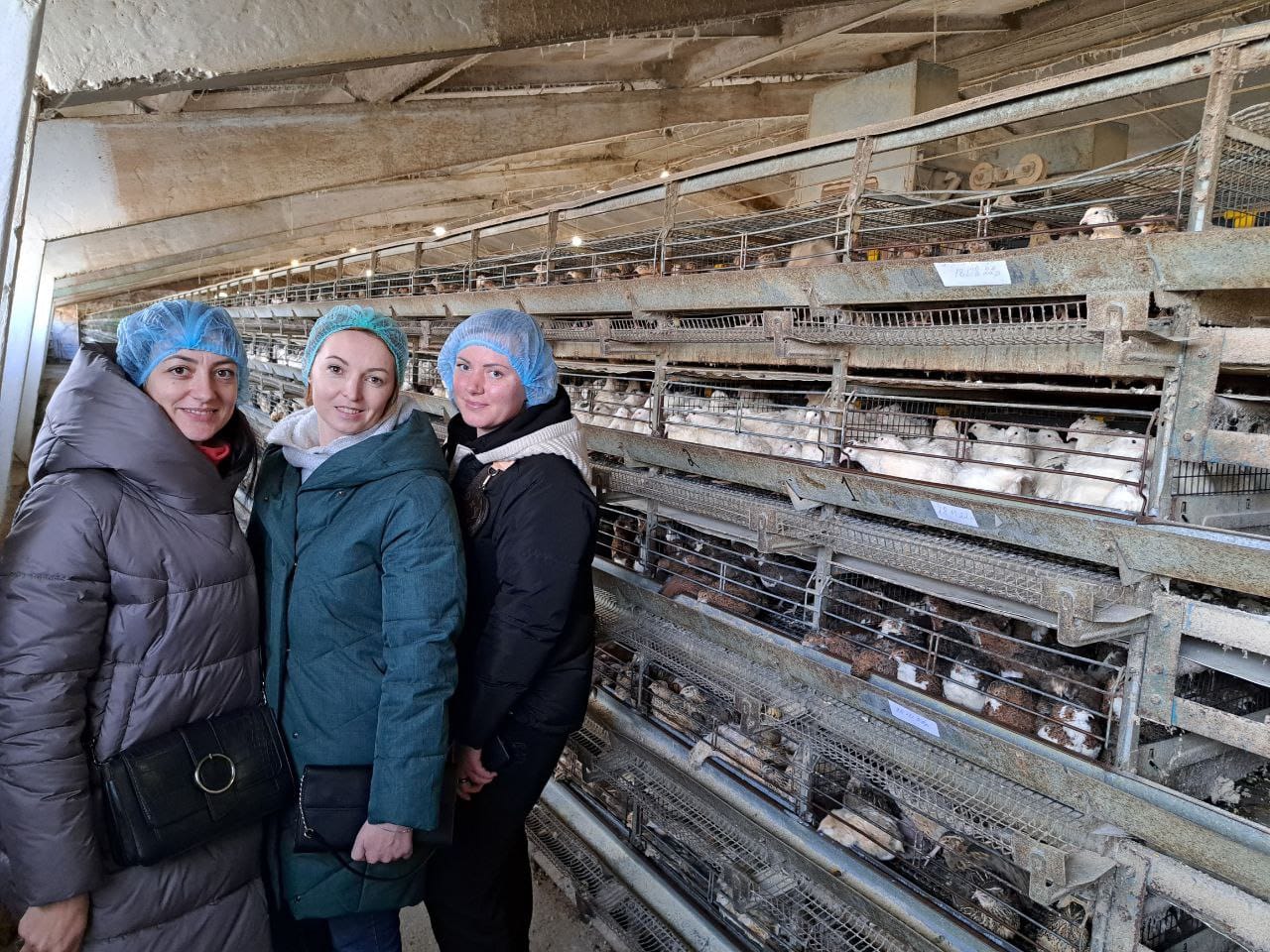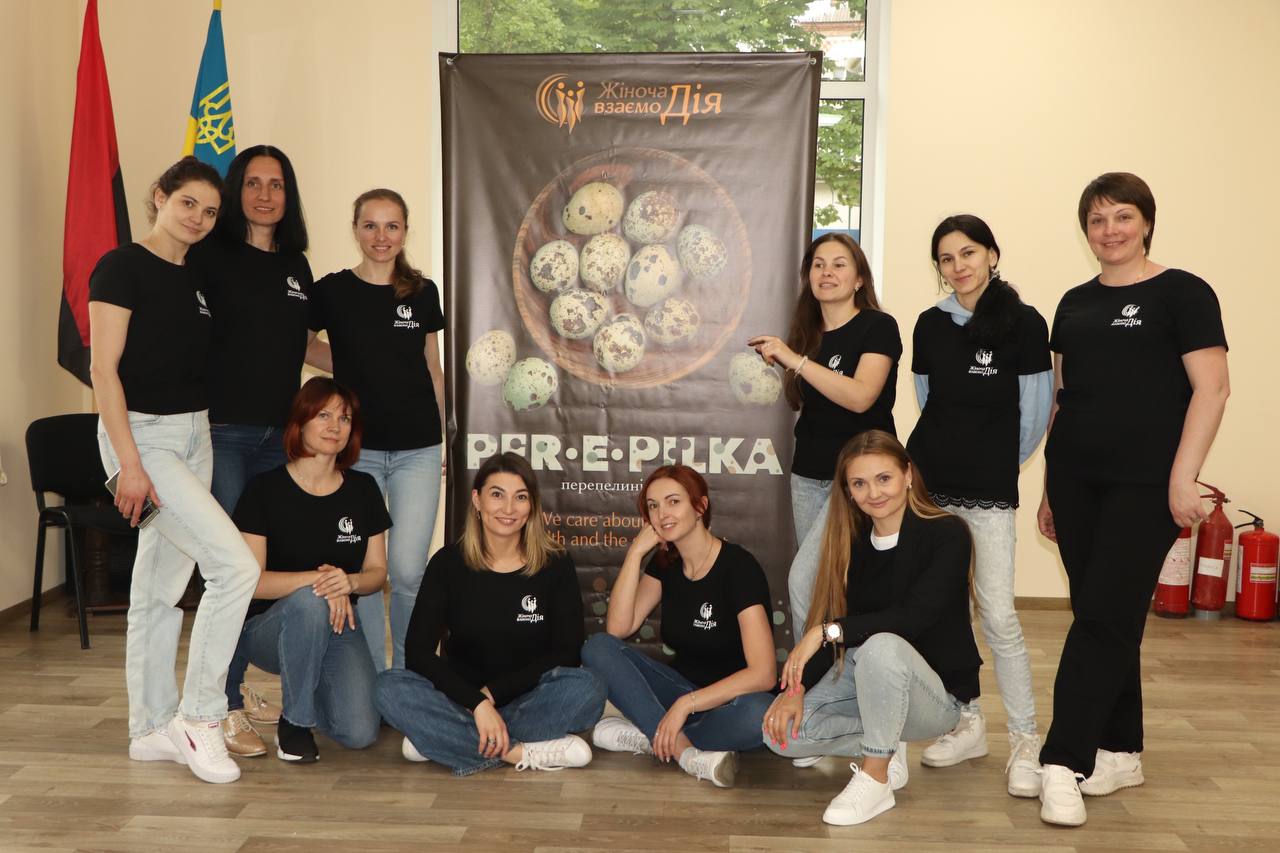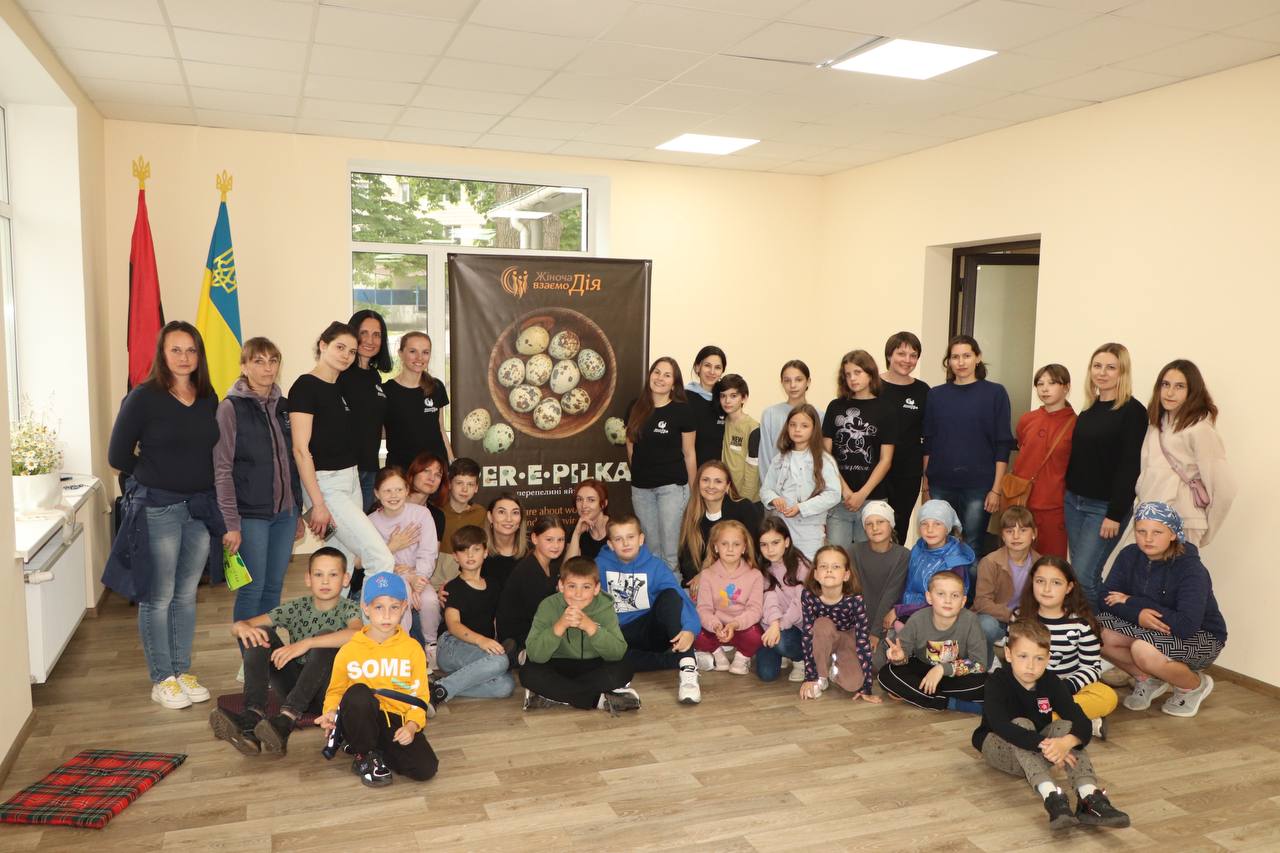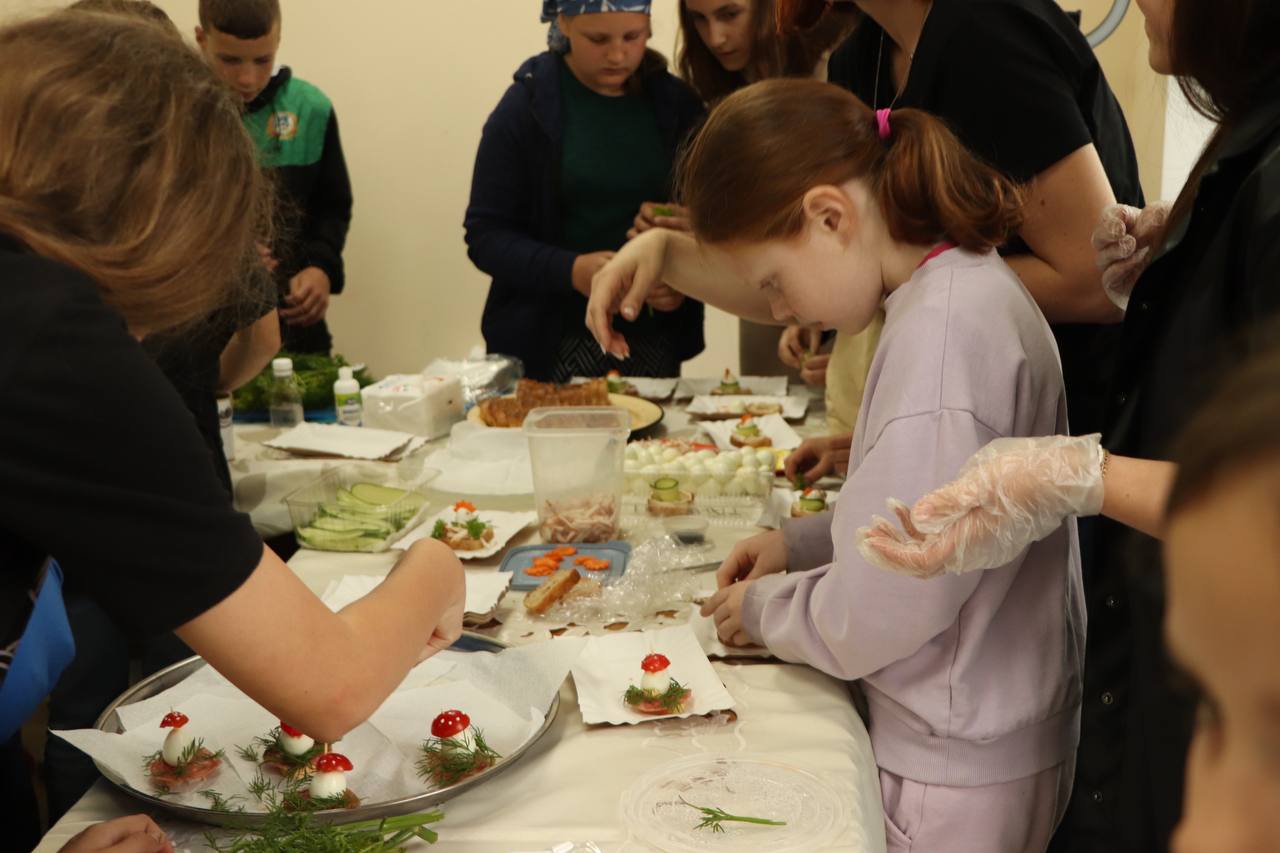AgriWomenEntrepreneurship - AWE
Basic information
Project Title
AgriWomenEntrepreneurship - AWE
Full project title
AgriWomenEntrepreneurship - AWE
Category
Prioritising the places and people that need it the most
Project Description
We have created jobs for women and their families in rural communities, giving them the opportunity to do their own business, but we took over legal, tax and marketing support issues from them. We took them "under the umbrella" of a social enterprise.
Our project has created an effective business model for social entrepreneurship, and in 9 months we managed to create the first full-cycle quail farms.The effective business model is ready to be scaled up for supporting people from rural areas.
Our project has created an effective business model for social entrepreneurship, and in 9 months we managed to create the first full-cycle quail farms.The effective business model is ready to be scaled up for supporting people from rural areas.
Geographical Scope
Local
Project Region
Smyha village, Diadkovychi village, Ukraine
Urban or rural issues
Mainly rural
Physical or other transformations
It refers to other types of transformations (soft investment)
EU Programme or fund
No
Description of the project
Summary
The goal of AWE's pilot project was to increase the economic resilience of IDP and local women in rural communities in Rivne region.
The project was implemented in 3 stages:
- At the first stage, we conducted entrepreneurship trainings for women: the basics of entrepreneurship, marketing, and forms of doing business
- At the second stage, we provided training in the agricultural sector, including trainings on food safety, poultry farming as a business, and quail farming.
- At the third stage, we opened 3 mini-farms, which we are currently piloting.
At the same time, we established Per-e-Pilka LLC as part of the project, which was co-founded by 2 NGOs.
We also developed a marketing strategy, a business model, branding, and a social enterprise development strategy.
Women received equipment, tools, feed and quail flocks and started raising quail.The LLC is engaged in the sale of products (eggs and meat), legal and accounting support of mini-farms.
In addition, since September 2023, we have received funding to establish an incubation farm, which is necessary for the creation of new social mini-farms (each farm starts with 1000 quails)/.
We are currently working on scaling up the next mini-farms and are looking for additional funding for this.
This project was born after 2 previous crisis projects, where we distributed seeds and chickens to IDP's people, but also conducted training on social entrepreneurship and conducted a survey on what people would like to do in the village.
If we describe the project in simple terms, we give people in the village work and that does not require learning new skills.
We give people economic and food sustainability. We reduce migration, given that this mechanism of creating self-employment places allows people to work at home without having to go abroad.
In addition, quail farms have the prospect of sustainable development, where all products and resources are processed and add value.
The project was implemented in 3 stages:
- At the first stage, we conducted entrepreneurship trainings for women: the basics of entrepreneurship, marketing, and forms of doing business
- At the second stage, we provided training in the agricultural sector, including trainings on food safety, poultry farming as a business, and quail farming.
- At the third stage, we opened 3 mini-farms, which we are currently piloting.
At the same time, we established Per-e-Pilka LLC as part of the project, which was co-founded by 2 NGOs.
We also developed a marketing strategy, a business model, branding, and a social enterprise development strategy.
Women received equipment, tools, feed and quail flocks and started raising quail.The LLC is engaged in the sale of products (eggs and meat), legal and accounting support of mini-farms.
In addition, since September 2023, we have received funding to establish an incubation farm, which is necessary for the creation of new social mini-farms (each farm starts with 1000 quails)/.
We are currently working on scaling up the next mini-farms and are looking for additional funding for this.
This project was born after 2 previous crisis projects, where we distributed seeds and chickens to IDP's people, but also conducted training on social entrepreneurship and conducted a survey on what people would like to do in the village.
If we describe the project in simple terms, we give people in the village work and that does not require learning new skills.
We give people economic and food sustainability. We reduce migration, given that this mechanism of creating self-employment places allows people to work at home without having to go abroad.
In addition, quail farms have the prospect of sustainable development, where all products and resources are processed and add value.
Key objectives for sustainability
The following sustainable development goals are traced through our project:
Goal 2 - we give people food sustainability
3 - by growing and consuming organic products, people improve their health
5 - jobs are created primarily for women in rural communities
7 - we plan to equip all newly created mini-farms with solar panels by the end of 2025 to save energy
8 - Living in their homes, people have decent earnings and create self-employment for their family members
11 - we create opportunities in small communities and neighborhoods
17 - as part of our project, we have started the process of uniting and cooperating people for sustainable development
We are proud that this project combines the issues of supporting IDPs, women, communities, creating new jobs, overcoming economic problems, and the environment. And the best thing about it is that the project can be scaled up within communities and regions in a quick and effective way
Goal 2 - we give people food sustainability
3 - by growing and consuming organic products, people improve their health
5 - jobs are created primarily for women in rural communities
7 - we plan to equip all newly created mini-farms with solar panels by the end of 2025 to save energy
8 - Living in their homes, people have decent earnings and create self-employment for their family members
11 - we create opportunities in small communities and neighborhoods
17 - as part of our project, we have started the process of uniting and cooperating people for sustainable development
We are proud that this project combines the issues of supporting IDPs, women, communities, creating new jobs, overcoming economic problems, and the environment. And the best thing about it is that the project can be scaled up within communities and regions in a quick and effective way
Key objectives for aesthetics and quality
The main goal of the project, from the perspective of people acquiring new skills, was to integrate IDPs into local communities.
The experience of working together, creating places of self-employment, internal communications within the framework of joint work and external communications from the angle of building a whole cooperative movement is what we managed to achieve in 2 communities.
In addition, 40 project participants received the knowledge to start their own business.
Of these, 10% gained experience in self-employment and time management.
This helps to increase the level of responsibility for their own business.
As part of the further development of the social enterprise, we will create training programs and encourage more and more women to create self-employment. The project is already showing its effectiveness and efficiency. People work much more efficiently when their results depend on their actions, and also when they are not alone. The process of joint development encourages scaling up.
The experience of working together, creating places of self-employment, internal communications within the framework of joint work and external communications from the angle of building a whole cooperative movement is what we managed to achieve in 2 communities.
In addition, 40 project participants received the knowledge to start their own business.
Of these, 10% gained experience in self-employment and time management.
This helps to increase the level of responsibility for their own business.
As part of the further development of the social enterprise, we will create training programs and encourage more and more women to create self-employment. The project is already showing its effectiveness and efficiency. People work much more efficiently when their results depend on their actions, and also when they are not alone. The process of joint development encourages scaling up.
Key objectives for inclusion
The project took into account the needs of people living in local communities and IDPs.
Participants were selected on the basis of non-discrimination and equality. All events within the project were accessible to people with disabilities.
We also equalized the chances of urban and rural women with this project.
In addition, we see the prospect of developing such farms that will be adapted for people with disabilities, as the work is not physically demanding. And it is worth adding that quails have a certain therapeutic effect on the people who work with them.
Therefore, the project can become one of the best in our region, and possibly in the country, from the perspective of inclusiveness and counteracting social exclusion. The project was also highly appreciated during the presentation of its results at conferences on localization of the Sustainable Development Goals in Chisinau (Moldova, School of Advocacy) and Berlin (Germany, GIZ).
Participants were selected on the basis of non-discrimination and equality. All events within the project were accessible to people with disabilities.
We also equalized the chances of urban and rural women with this project.
In addition, we see the prospect of developing such farms that will be adapted for people with disabilities, as the work is not physically demanding. And it is worth adding that quails have a certain therapeutic effect on the people who work with them.
Therefore, the project can become one of the best in our region, and possibly in the country, from the perspective of inclusiveness and counteracting social exclusion. The project was also highly appreciated during the presentation of its results at conferences on localization of the Sustainable Development Goals in Chisinau (Moldova, School of Advocacy) and Berlin (Germany, GIZ).
Results in relation to category
3 mini-quail farms were created (6 places of self-employment for women and their families)
Registered social enterprise "Per-e-pilka"
A business model, strategy and marketing strategy, branding were developed.
So far, a grant project has been won to expand the activities of a social enterprise - we are creating an incubation department that will provide new farms with quail.
These are the key results. But, of course, those women who received the training increased their level of knowledge about entrepreneurship by more than 20% and now have new skills for further development.
Registered social enterprise "Per-e-pilka"
A business model, strategy and marketing strategy, branding were developed.
So far, a grant project has been won to expand the activities of a social enterprise - we are creating an incubation department that will provide new farms with quail.
These are the key results. But, of course, those women who received the training increased their level of knowledge about entrepreneurship by more than 20% and now have new skills for further development.
How Citizens benefit
The project created new self-employment opportunities for local women (3 people) and IDP women (3 people). This has had an impact on their level of economic resilience, as well as on the integration of IDP women into local communities.
Also, as part of the project, we organized a local communication event, Per-e-pilka Fest, where we engaged residents of one of the communities to participate in the event. We organized healthy eating workshops for adults, workshops with psychologists, and culinary workshops for grandfathers, where they (IDPs and locals) jointly prepared sandwiches with quail eggs and learned more about birds such as quails.
We engaged local artistic groups and representatives of the local government to participate in the procession, which helped to strengthen support for the initiative in the community.
Participants of the event were interested in opportunities to join the project and we are currently looking for opportunities to open new quail farms and train people to work on them.
The project shows success stories that inspire other residents of the community to change.
Also, as part of the project, we organized a local communication event, Per-e-pilka Fest, where we engaged residents of one of the communities to participate in the event. We organized healthy eating workshops for adults, workshops with psychologists, and culinary workshops for grandfathers, where they (IDPs and locals) jointly prepared sandwiches with quail eggs and learned more about birds such as quails.
We engaged local artistic groups and representatives of the local government to participate in the procession, which helped to strengthen support for the initiative in the community.
Participants of the event were interested in opportunities to join the project and we are currently looking for opportunities to open new quail farms and train people to work on them.
The project shows success stories that inspire other residents of the community to change.
Physical or other transformations
It refers to other types of transformations (soft investment)
Innovative character
The project's innovation was based on the following factors:
- development and implementation of a business model, where a social enterprise is created from scratch in less than 1 year, which provides months of self-employment with full support (accounting and legal services, supply of inventory and feed at wholesale prices, sales of products, etc.)
- from the start of the active phase of the quail rearing project, within 45 days the quails reach the productive age and start generating income, which provides women with a quick income
- the developed business strategy, marketing strategy and legal form of activity allow for rapid scaling
- development and implementation of a business model, where a social enterprise is created from scratch in less than 1 year, which provides months of self-employment with full support (accounting and legal services, supply of inventory and feed at wholesale prices, sales of products, etc.)
- from the start of the active phase of the quail rearing project, within 45 days the quails reach the productive age and start generating income, which provides women with a quick income
- the developed business strategy, marketing strategy and legal form of activity allow for rapid scaling
Disciplines/knowledge reflected
We taught women entrepreneurship. Then they gave knowledge in the field of quality management systems, food safety, organic standards in agriculture. We also held a training session on grant programs for business development to explain to people why in this project they get opportunities for which they personally do not pay anything. The project was implemented with the financial support of the Ukrainian Women's Fund. So we introduced the female project participants to Ukraine's largest entrepreneurship development programs.
Thanks to the fact that we worked with women who have experience in agriculture, it was easy for us to give them additional qualifications specifically for running a business in the field of quail mini-farms.
Now this knowledge is supported in practice. And the families of these women have the opportunity to join the family business. So we reached a much wider target audience. These are not only women, but also their husbands, children, mothers. Communication skills became an additional result of the project. Communication within the family received a new look - where the family is involved in a joint process for a joint result.
Thanks to the fact that we worked with women who have experience in agriculture, it was easy for us to give them additional qualifications specifically for running a business in the field of quail mini-farms.
Now this knowledge is supported in practice. And the families of these women have the opportunity to join the family business. So we reached a much wider target audience. These are not only women, but also their husbands, children, mothers. Communication skills became an additional result of the project. Communication within the family received a new look - where the family is involved in a joint process for a joint result.
Methodology used
The project included expert advice: legal, marketing, and strategy development.
We used a LEAN-starup approach to test hypotheses and make sure that the business module was effective at the pilot project level. We now realise that this approach has proved to be a success. The three mini-farms we have created are working effectively and provide income for the women who started them as part of the project. And we are planning this area of NGO activity using the project approach. Effective scaling will be possible with proper planning.
We used a LEAN-starup approach to test hypotheses and make sure that the business module was effective at the pilot project level. We now realise that this approach has proved to be a success. The three mini-farms we have created are working effectively and provide income for the women who started them as part of the project. And we are planning this area of NGO activity using the project approach. Effective scaling will be possible with proper planning.
How stakeholders are engaged
The project was implemented on the territory of the local communities, residents of the community and local self-government bodies were involved. The project was preceded by 2 rapid response projects: we provided local and IDP families with seeds in one project and they cultivated it together. In the second project, we provided chickens for growing them up together. Both projects had educational components. We also conducted surveys among community residents.
This is how the idea of creating a social enterprise was born, which will take on management functions and give people jobs. We received the support of local government in disseminating information about the project and currently have the interest of neighboring communities in opening the same mini-farms for raising quails.
This is how the idea of creating a social enterprise was born, which will take on management functions and give people jobs. We received the support of local government in disseminating information about the project and currently have the interest of neighboring communities in opening the same mini-farms for raising quails.
Global challenges
In order to enter foreign markets, we need to implement a quality management system, research markets where our products will be valuable, and develop a marketing strategy.
And most importantly, we need to open a number of mini-farms that will ensure the formation of commodity batches.
Of course, the biggest challenge is the war and blackouts, but we believe that after Ukraine's victory, we will be able to develop our quail farms much more effectively and thus support the country's economy
And most importantly, we need to open a number of mini-farms that will ensure the formation of commodity batches.
Of course, the biggest challenge is the war and blackouts, but we believe that after Ukraine's victory, we will be able to develop our quail farms much more effectively and thus support the country's economy
Learning transferred to other parties
Our project can be scaled to any rural community in the country or beyond, if we stick to the business module, which has one support organization and local mini-farms where people simply take care of the quails: cook them, collect them products and sort them according to standards.
Also, our project has the opportunity to be included in the implementation of the initiative "Creation and improvement of global chains of added value", which will open new markets.
With effective scaling, we will be able to open new mini-farms and create jobs very quickly.
As part of the project, we used the LEAN methodology, where we tested hypotheses step by step and verified the developed business model. Now we see its effectiveness and further steps in the development of this direction will take place in a project approach.
Also, our project has the opportunity to be included in the implementation of the initiative "Creation and improvement of global chains of added value", which will open new markets.
With effective scaling, we will be able to open new mini-farms and create jobs very quickly.
As part of the project, we used the LEAN methodology, where we tested hypotheses step by step and verified the developed business model. Now we see its effectiveness and further steps in the development of this direction will take place in a project approach.
Keywords
sustainability
social entrepreneurship
communities
migration
product sustainability

